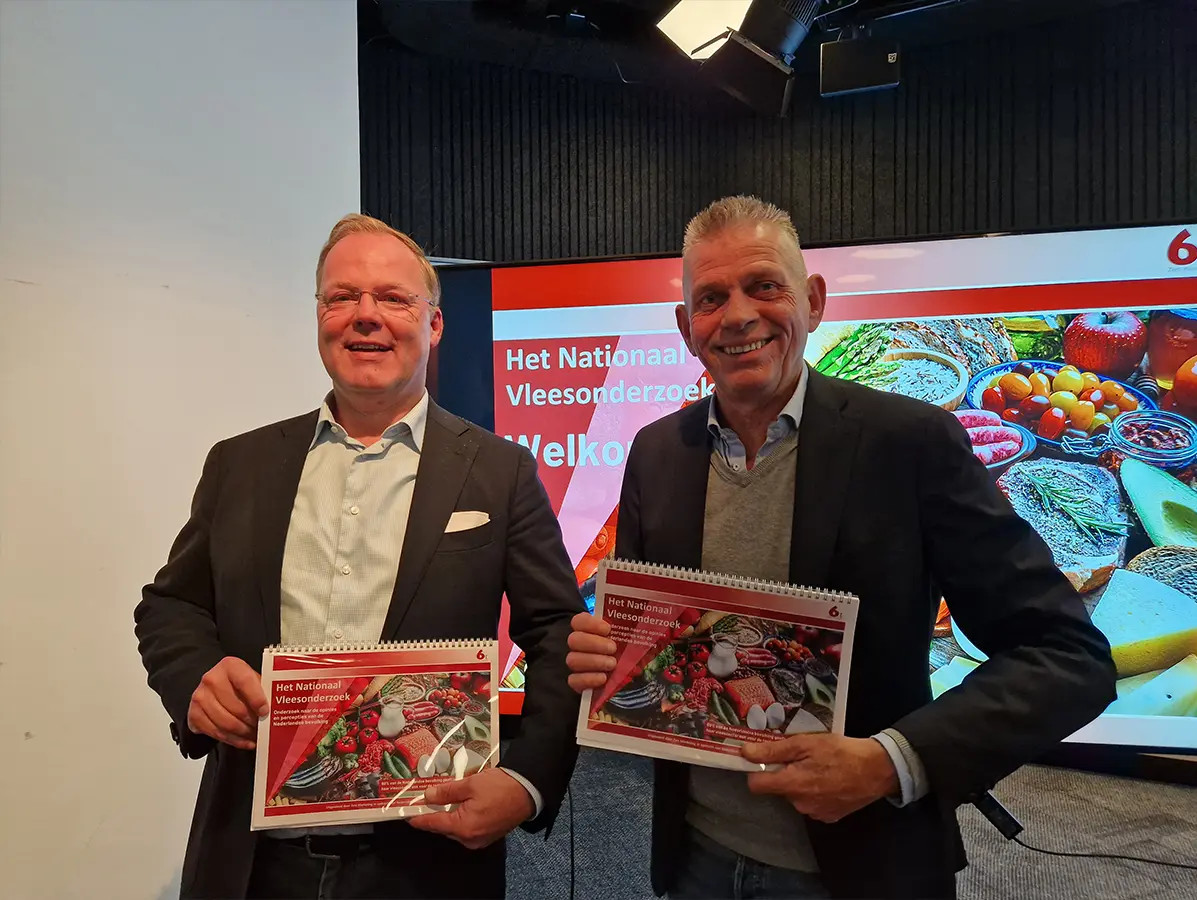
The National Meat Survey 2024, conducted by Zest Marketing on behalf of Nederland Vleesland, provides insights into the opinions and perceptions of the Dutch population regarding the meat sector, meat consumption, sustainability, and food security. Some key and noteworthy conclusions.
95% of respondents say they eat meat, while 5% identify as vegetarian, pescatarian, or vegan. However, the perception within society is quite different; 79% of respondents believe that far more than 5% of Dutch people do not eat meat. This suggests a somewhat skewed view. Moreover, that 5% is likely even smaller in reality, as many in this group still consume meat occasionally or even daily: 44% of vegetarians (3% of the total) admit to eating meat regularly, and 37% of vegans (0.6% of the total) consume animal proteins. An interesting fact: 70% of voters for the Party for the Animals still eat meat.
76% of Dutch people believe that meat should remain an essential part of our diet in the future. This is an increase compared to previous years, indicating that people value meat's role in a healthy and balanced diet. Around 30% of meat-eaters do report eating less meat than they did a year ago.
There is significant concern about rising food costs, especially in the current context of economic uncertainty. 71% of respondents believe that meat should remain affordable and accessible to everyone, highlighting a shared sense of responsibility to keep healthy food available to the entire population. Meanwhile, 45% worry that meat is becoming financially out of reach for some groups. 69% of Dutch people believe the country should continue to strengthen its meat sector for the future.
The National Meat Survey results also show a lack of understanding of production practices within the Dutch meat industry. Some respondents incorrectly believe that hormones, antibiotics, and vaccines are present in Dutch meat. However, it’s important to note that Dutch and EU regulations enforce strict standards for meat safety and quality, ensuring that the meat is free from such additives.
A majority of respondents, 67%, believe the Dutch government should not impose restrictions on meat consumption, an increase of 5 percentage points since 2022. In contrast, a small minority of 11% supports political measures to limit meat consumption, a slight decrease of 1%. These figures suggest growing resistance to regulatory interventions in personal dietary choices.
The Dutch public is increasingly concerned about food security and affordability, while the urgency to promote sustainable agricultural practices continues to grow. "The results of this survey provide a crucial foundation for policy discussions and can contribute to a constructive dialogue on the future of the meat sector in the Netherlands," says Laurens Hoedemaker, chairman of Nederland Vleesland. He emphasizes that these discussions should be based on facts and figures, rather than the gut feelings of a small group, which is too often the case today.
Source: Nederland Vleesland